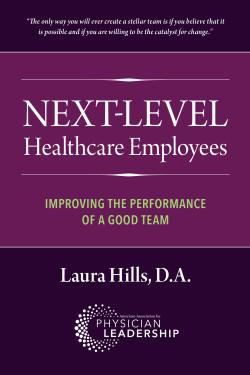Summary:
This list of 50 powerful coaching questions can help you learn what powerful questions sound and feel like. Identify those that you believe will be most useful with your employees.
The most powerful questions grow organically from the coaching conversations you have with your employees. Still, the list below of 50 powerful coaching questions can help you learn what powerful questions sound and feel like. Identify those that you believe will be most useful with your employees. Practice them aloud so you can ask them comfortably during your coaching sessions.
What’s missing from this picture so far? What is it we’re not seeing?
What do we need more clarity about?
What’s most important to you about it and why do you care?
What assumptions do we need to test or challenge here in thinking about it?
What opportunities can you see in this?
What would it take to create change on this issue?
What would be the biggest impact if you achieve your goal?
What’s emerging for you? What new connections are you making?
What’s been your major learning, insight, or discovery so far?
If there was one thing that hasn’t yet been said in order to reach a deeper level of understanding/clarity, what would that be?
If our success was completely guaranteed, what bold steps might you choose?
On a scale of 1 to 10, how excited do you feel about taking these actions? What would make it a 10?
What’s your favorite way of sabotaging yourself and your goals? If you were going to sabotage yourself on this project, how would you do it?
What are you trying to prove to yourself?
What small steps can you take to get you closer to your vision?
What do you think the moral of that story is?
What are you waiting for?
What part of what you’ve just said could be an assumption?
If I were in your shoes and asked for advice, what would be the first thing you’d tell me?
What mistakes have you made today?
Where do you have unrealistic expectations of yourself?
What parts of yourself are you keeping bottled up but are dying to let out?
What’s keeping you from taking action?
How can you get the skills/knowledge/information you need?
What should I say to you if I spot you doing this?
What do you want more of/less of in your job?
What are you tolerating/putting up with?
Can you imagine your desired outcome? Describe it to me.
Where are you not respecting yourself right now?
How could you bring more creativity, fun, and joy into your work?
If the same obstacle came up again, what would you do? What can you learn from this?
What other areas of your work/life may be affected by this change?
What do you not want me to ask you?
What’s the problem in a nutshell? In one sentence? In a word?
What are you avoiding? How does this impact you in your work? In your life?
Where could you be more forgiving and understanding of others? Of yourself?
What might need to change?
Let’s take your concern to its logical conclusion. What’s the worst thing that can happen?
If you secretly didn’t want to achieve your goal, what would you do?
How would you like to be held accountable?
What would happen if you raised your expectations?
What are you not saying?
What do you consider to be your role in our healthcare organization? In your life?
What do you need to stop saying yes to?’
What part of you is not being acknowledged?
What would you be willing to give up to achieve this?
How do you feel in your body when you say that?
How are you going to maintain momentum?
What would you like to express in your work more?
If you dared say it aloud, what would you make happier in your career? In your life?
Excerpted from Next-Level Healthcare Employees: Improving the Performance of a Good Team by Laura Hills, DA.
Topics
People Management
Conflict Management
Related
Preparing for Catastrophes: What Physician Leaders Need to KnowSustainable Physician Leadership: A Career Roadmap for Longevity, Growth, and FulfillmentNew Research on How Women in Leadership Navigated MenopauseRecommended Reading
Problem Solving
Sustainable Physician Leadership: A Career Roadmap for Longevity, Growth, and Fulfillment
Problem Solving
New Research on How Women in Leadership Navigated Menopause
Operations and Policy
Healthcare AI Adoption Is About People and Organizations, Not Technology
Operations and Policy
A Better Way to Manage Internal Talent Markets
Operations and Policy
Managing a Slob


